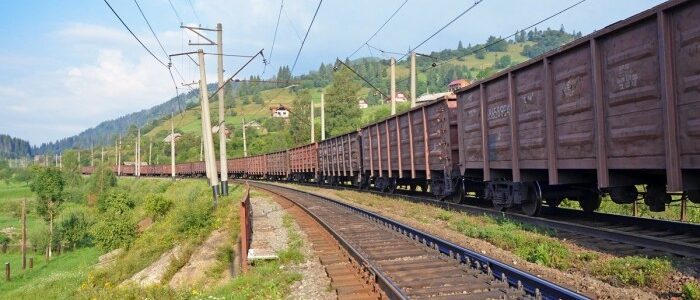
Associations of Ukrainian manufacturers call on the Ministry of Infrastructure of Ukraine to introduce a moratorium on raising tariffs for rail freight for the period of martial law and 6 months. after its termination.
“There was no real discussion between shippers and the carrier about a compromise solution to increase tariffs – we were simply presented with a fact. When Ukrzaliznytsia announced the discussion of raising tariffs by 70%, the order to increase tariffs had already been signed. We had specific proposals: to introduce a moratorium for the period of martial law and 6 months after on the increase in tariffs within the borders of Ukraine, and all related services,” said Ludmila Kripka, executive director of the Ukrcement association, at a press conference at the Interfax-Ukraine agency on Thursday.
According to her, UZ did not take into account the transportation of raw materials, coal, fillers in the infrastructure component of transportation, and did not include the tariff distance, which is why the cost of the final product will increase more significantly than in the carrier’s forecast.
“The impact on the cost of the final product will be much higher than presented by UZ. On the example of cement: for us, the main raw material is limestone, and there the highest figure is 55%. Other industries fell into the values of 0-13%,” Kripka said.
In addition, from August 1, the calculation for the use of wagons will be changed to the actual one instead of the planned one, which will also increase the costs of shippers due to delays in border crossings, the expert noted.
Oleg Misyuk, a representative of the Ukrainian Association of the Limestone Industry, pointed out that the decision to raise tariffs would have a significant impact on the lime market, which is already undergoing a significant decline in production volumes.
“Before the war, the cost of delivery from the west of Ukraine to the Dnieper was 400 UAH per ton, now it is 650 UAH. With a producer price of up to 300 UAH / t, the consumer overpays another 200-250 UAH from July 1. In general, lime production has fallen from pre-war 1, 2 million tons per month to 350 thousand tons in May-June. The decision of UZ to increase tariffs will hit the market even harder, we expect a fall by another 30-40%,” he said.
The expert also noted that the increase in tariffs may put Ukrainian lime producers in a non-competitive position in front of foreign companies interested in entering the Ukrainian market.
At the same time, the increase in the cost of logistics for grain exporters, coupled with the blocking of Ukrainian ports, can play a decisive role in the bankruptcy of most agricultural producers, says Nikolai Gorbachev, president of the Ukrainian Grain Association.
“With this increase in tariffs, the logistics to the port of Constanta in Romania is already $180. The price for a loaded vessel is about $240 per ton. Thus, the agricultural producer needs to sell barley from the elevator for $50-60. The cost of growing it is more than $160. He will not receive even a third of his costs, so he will not carry out any sowing campaign in August. This will lead to the bankruptcy of most agricultural producers,” he said.
The Ukrainian Association of Ferroalloys and Other Electrometallurgical Products also opposed the increase in tariffs.
“Ferroalloys are cargo of the third tariff class, and are transported by rail only accompanied by guards paid by the hour. And given the change in the logistics of transportation due to the war, cargo in some directions is on the road 9-10 times longer than before the war” – explained the head of the association Sergey Kudryavtsev.
Meanwhile, transportation of ferroalloy products was cost-effective for UZ even with tariffs before the increase, he added.
Metallurgical enterprises are currently not operating at full capacity, many of them have been stopped and destroyed, while they continue to pay wages to workers, said Alexander Kalenkov, head of the Ukrmetallurgprom association.